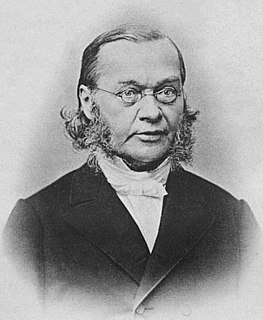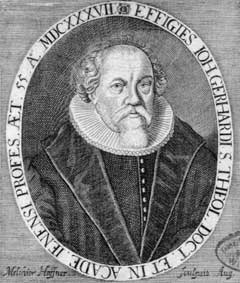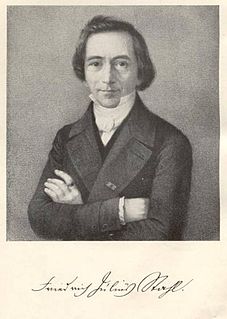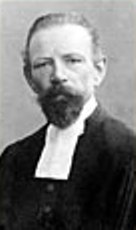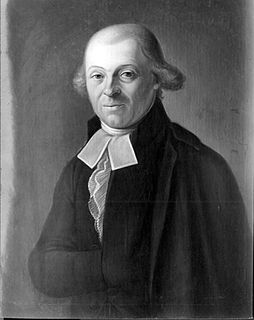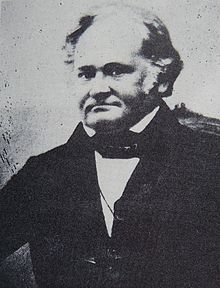
Johann Wilhelm Friedrich Höfling (December 30, 1802 – April 5, 1853) was a German Lutheran theologian born in Neudrossenfeld, Bavaria. He specialized in the field of liturgical science.

Neudrossenfeld is a municipality in the district of Kulmbach in Bavaria in Germany.
Liturgy is the customary public worship performed by a religious group. As a religious phenomenon, liturgy represents a communal response to and participation in the sacred through activity reflecting praise, thanksgiving, supplication or repentance. It forms a basis for establishing a relationship with a divine agency, as well as with other participants in the liturgy.
He studied philology and theology at Erlangen, and following his theological exam served as a vicar in Würzburg (1823) and as a minister in Nuremberg (1827). In 1831 he earned his doctorate in philosophy at Tübingen, and in 1835 received his theological degree. In 1833 he was appointed professor of practical theology at the University of Erlangen. He died in Munich.
Philology is the study of language in oral and written historical sources; it is the intersection between textual criticism, literary criticism, history, and linguistics. Philology is more commonly defined as the study of literary texts as well as oral and written records, the establishment of their authenticity and their original form, and the determination of their meaning. A person who pursues this kind of study is known as a philologist.

Theology is the critical study of the nature of the divine. It is taught as an academic discipline, typically in universities and seminaries.
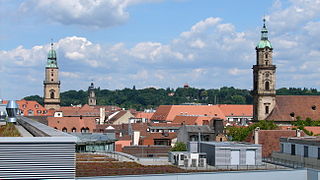
Erlangen is a Middle Franconian city in Bavaria, Germany. It is the seat of the administrative district Erlangen-Höchstadt and with 113,752 inhabitants it is the smallest of the eight major cities in Bavaria. The number of inhabitants exceeded the limit of 100,000 in 1974, making Erlangen a major city.


